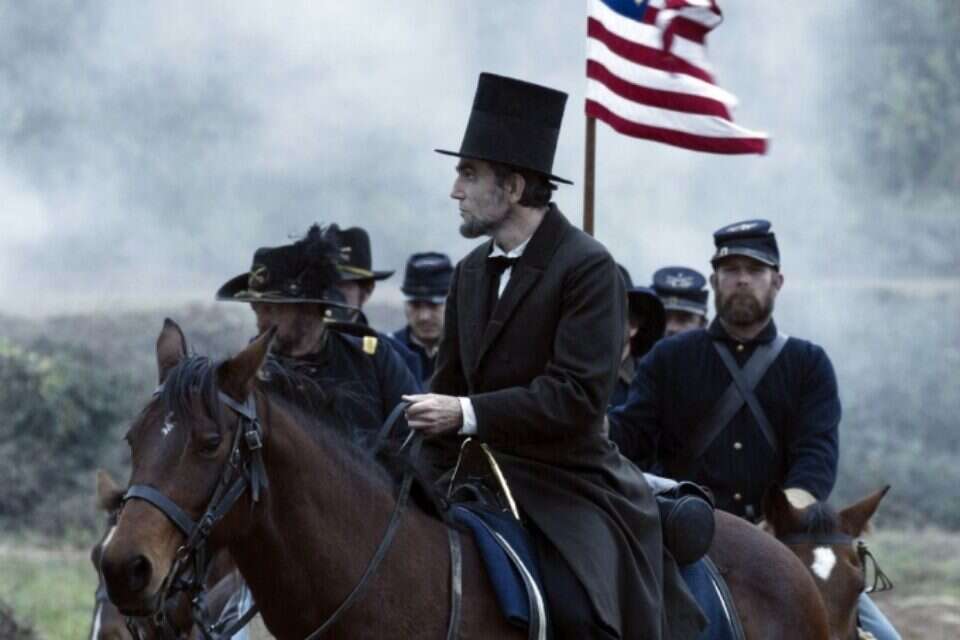Dred Scott thought he deserved to be released, because under the Missouri Compromise of 1820, his stay in slavery-free Minnesota was supposed to make him legally a free man.
But Chief Justice Roger Tiny thought that, like a horse or a table, a black slave had no right to stand in court, but exemption for nothing was impossible—so he made sure to clarify that even if the slave had the right to stand, the Missouri Compromise violated his master's property right and was therefore unconstitutional. Tiny hoped that sitting as head of the judiciary he could decide the question of slavery, a social issue that tore American citizens apart.
But most Americans believed that every human being deserved liberty, even if the Supreme Court ruled otherwise. Indeed, in the next election, the staunch abolitionist Abe Lincoln was elected president, partly out of concern that abolishing the political compromise, which left half the states free of slavery, would restore human rights under the auspices of the Constitution and turn free states into slave states.
The head-on clash between Judge Tiny and President-elect Lincoln came a little later, when the Civil War was already raging; In the state of Maryland, John Merriman, who participated in sabotage operations on behalf of the Southern states, was caught and imprisoned on charges of treason and membership in an enemy army. His lawyers petitioned the Maryland court, presided over by Judge Tiney, while serving as Chief Justice, and it issued a subpoena, habeas corpus, ordering the detainee to be brought before a judge or released immediately.
The prison commander noticed which judge the detainee would face and therefore refused to release him, Tiny sent the Marshals Service, the military force of the judiciary, to enforce the order and free Merriman, Lincoln understood what was happening and sent a Union Army unit against them. Face to face, rifle to rifle, the military wing of the judiciary stood at the entrance to the prison compound against that of the executive branch, until Tiny ordered his forces withdrawn.
But Tiny did not despair, and hastened to rule that the extraordinary constitutional authority to suspend a wrought writ of habeas corpus rests solely with Congress, not with the president. In a leadership move, Lincoln decided to ignore this ruling, and on Independence Day that year explained his extraordinary decision in his famous speech "All the laws but one", in which he argued that there could be no situation in which the court adhered to one law and thus overrode other laws and dissolved the elected government.
U.S. citizens buried more than 60 imports of men to realize that a minority cannot impose rights and liberty on the majority, even when it relies on the Constitution. 80 years later, Justice Larned Hand put it in his "Spirit of Liberty" speech: "I often wonder if we don't place our hopes too much on constitutions, laws and courts. Believe me, these are false hopes. Freedom lies in the hearts of men and women; When she is dying there, there is no constitution, no law and no court that can do anything to help her. When it dwells there, it needs no constitution, no law, no court to block it."
In Tamir Dortal's podcast "On the Meaning," Adv. Ziv Maor presents additional examples of leadership that practices disobedience to a ruling, including from France and even an anecdote from Israel regarding the removal of former Knesset member Michael Gorlowski's immunity in the double vote affair. The State of Israel is not facing a constitutional crisis, but is already deep in the crisis. Article 2 of the Basic Law: Judiciary states that "in matters of adjudication, there is no authority over anyone who has judicial authority, other than the authority of the law."
But in the salami system, the components of Prof. Aharon Barak's constitutional revolution turned the "law" into plasticine in the hands of the judiciary and did not, in practice, constitute the only check on the judicial system. Like a train without brakes, the judiciary is running over more and more of the power and status of the elected authorities, until the inevitable collision will force the public to draw its boundaries for the judicial system.
Wrong? We'll fix it! If you find a mistake in the article, please share with us

